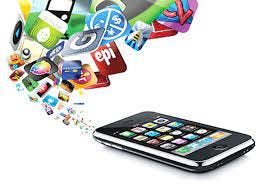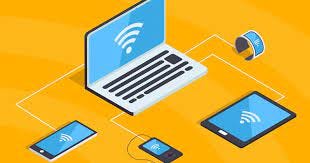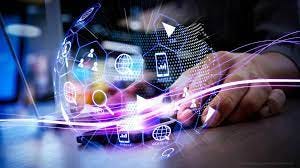Cell phones
Cell phones, also known as mobile phones, have become an integral part of our daily lives and have transformed the way we communicate, access information, and stay connected. Here are some key aspects and benefits of cell phones:
- Communication: Cell phones enable instant and convenient communication with others, regardless of their location. Through voice calls, text messaging, and various messaging apps, we can easily connect with friends, family, colleagues, and businesses.
- Accessibility: Cell phones provide widespread accessibility to communication and information. They have bridged the digital divide, allowing individuals in remote areas and developing countries to connect to the internet, access educational resources, and participate in the global digital community.
- Internet Access: Modern cell phones come equipped with internet connectivity, allowing users to access a vast range of online services and resources. Mobile browsers, apps, and social media platforms enable browsing the web, accessing emails, engaging in social networking, and utilizing various online services.

- Information and Media Consumption: Cell phones serve as portable multimedia devices, providing access to news, entertainment, and media content on the go. Users can read news articles, watch videos, listen to music and podcasts, and access a wide range of digital media.
- Productivity and Organization: Cell phones offer various productivity tools and applications that enhance efficiency and organization. Users can manage their calendars, set reminders, access cloud storage, and utilize productivity apps for tasks such as note-taking, project management, and document editing.
- Navigation and GPS: Cell phones with built-in GPS capabilities have revolutionized navigation and mapping. Users can access navigation apps that provide turn-by-turn directions, real-time traffic updates, and location-based services, making it easier to navigate unfamiliar areas.

- Mobile Payments: Cell phones have facilitated the adoption of mobile payment systems, allowing users to make secure transactions using their devices. Mobile wallet apps and contactless payment technologies enable convenient and fast payments at stores, restaurants, and online platforms.
- Photography and Multimedia: Cell phones have become the primary devices for capturing photos and videos. With advancements in camera technology, users can take high-quality photos, edit them, and instantly share them with others. Cell phones also serve as portable media players, allowing users to enjoy their favorite music, movies, and podcasts.

- Social Connectivity: Cell phones play a significant role in social connectivity, enabling users to stay connected with friends, family, and social networks. Social media apps and messaging platforms facilitate real-time communication, sharing updates, and fostering social interactions.
- Emergency Communication: Cell phones provide a lifeline during emergencies, allowing users to call for help, report incidents, and stay informed. The ability to quickly reach emergency services or contact loved ones in critical situations can be lifesaving.
- Personal Safety: Cell phones contribute to personal safety through features like emergency SOS buttons, location tracking, and safety apps. These tools offer peace of mind and ensure that users can seek assistance or alert authorities when needed.

- Entertainment and Gaming: Cell phones serve as portable entertainment devices, offering a wide range of games, multimedia content, and streaming services. Users can enjoy games, stream movies and TV shows, listen to music, and engage in various forms of digital entertainment.
- Mobile Health and Fitness: Cell phones and health-related apps have become valuable tools for monitoring health and fitness. Fitness tracking apps, heart rate monitors, sleep trackers, and nutrition apps help individuals manage their well-being and track their fitness goals.

- Business and Professional Use: Cell phones have become indispensable tools for professionals, enabling them to stay connected, access work-related documents and emails, and manage business tasks on the go. They provide flexibility and productivity for individuals who need to work remotely or travel frequently.

- Personalization and Customization: Cell phones allow users to personalize their devices with customized wallpapers, themes, and apps. Users can tailor their devices to reflect their personal preferences and enhance the user experience.
Social Impact: Cell phones have had a profound social impact, connecting people from diverse backgrounds and cultures. They facilitate social inclusion, allowing individuals to participate in virtual communities, share experiences, and engage in social activism and advocacy.
Mobile Apps: Cell phones offer a wide range of mobile applications, or apps, that cater to various needs and interests. These apps span multiple categories, including entertainment, productivity, education, health, finance, and more, providing users with a vast selection of tools and services.
Personal Assistant: Cell phones with virtual assistant apps, such as Siri, Google Assistant, or Alexa, provide users with voice-controlled assistance. These virtual assistants can perform tasks, answer questions, set reminders, provide weather updates, and even control smart home devices, enhancing convenience and efficiency.
Enhanced Connectivity: Cell phones enable seamless connectivity through technologies like Bluetooth, Wi-Fi, and 4G/5G networks. This connectivity allows users to pair their devices with other gadgets, share files wirelessly, and access the internet from anywhere, promoting a highly interconnected digital ecosystem.
Mobile Banking and Financial Services: Cell phones have revolutionized banking and financial services. Mobile banking apps allow users to manage their accounts, transfer funds, pay bills, and conduct financial transactions securely from their devices. This convenience has made banking more accessible and efficient for individuals worldwide.

Language Translation: Language translation apps on cell phones break down language barriers by providing real-time translation of written and spoken text. This feature is invaluable for travelers, international business communications, and fostering cross-cultural interactions.
Personal Entertainment: Cell phones serve as portable entertainment hubs, offering access to a wide range of entertainment options. Users can enjoy streaming services, play games, read e-books, listen to podcasts, and engage in various forms of entertainment during their leisure time.
Mobile Security: With the increasing amount of sensitive data stored on cell phones, mobile security has become crucial. Cell phones employ various security measures such as biometric authentication (fingerprint or facial recognition), encryption, and remote tracking/wiping to protect user privacy and data.
Environmental Impact: The use of cell phones has led to a decrease in the consumption of traditional paper-based products, such as physical maps, printed tickets, and documents. This shift to digital formats has contributed to reduced paper waste and a more eco-friendly approach to information and communication.

Technological Convergence: Cell phones have embraced technological convergence by integrating multiple functions into a single device. Along with communication, they incorporate features such as cameras, music players, GPS navigation, voice assistants, and more, reducing the need for separate gadgets.
Mobile Learning: Cell phones have facilitated mobile learning or m-learning, allowing users to access educational resources, online courses, and interactive learning platforms from their devices. This flexibility enables lifelong learning and educational opportunities beyond traditional classroom settings.
Personal Productivity: Cell phones offer a range of productivity tools, including calendars, task managers, note-taking apps, and cloud storage integration. These features help individuals stay organized, manage their schedules, and increase productivity in both personal and professional contexts.
Access to Government Services: Cell phones provide convenient access to government services and information. Users can access official websites, pay taxes, renew licenses, and receive emergency alerts, making government services more accessible and streamlined.

Digital Wallets and Mobile Payments: Cell phones have embraced digital wallet technology, enabling users to store credit/debit card information and make secure mobile payments. This convenience eliminates the need to carry physical wallets and promotes contactless transactions.
Technological Advancements: Cell phones continue to evolve with cutting-edge technologies such as artificial intelligence, augmented reality, and virtual reality. These advancements open up new possibilities for communication, entertainment, and interactive experiences.


.jpg)

.jpeg)
.jpeg)
No comments:
Post a Comment